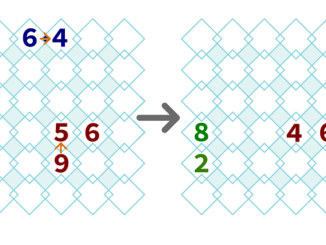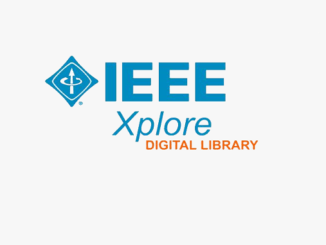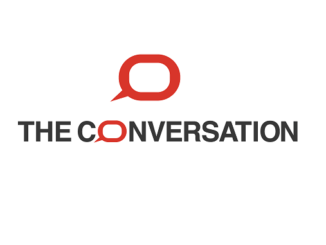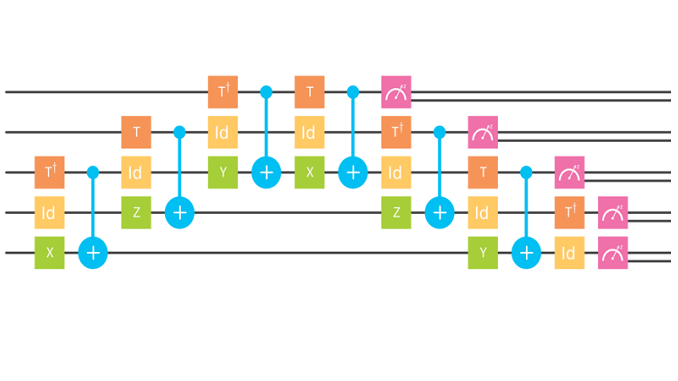
Last year I was given the money and resources to start a citizen science project. It was to be a project that allowed anyone and everyone to get involved with quantum computers. It was called Decodoku.
Now the pot of money is gone, but the project lives on. Those who have contributed so far will see their work become part of the scientific establishment. New contributors will get a chance to work on problems that need their insight. If you want to be a co-inventor of the quantum computer, read on.
Decodoku in 2016
Last year our efforts were focussed on getting everything up and running. One of the most important tasks was to make our apps. Though they may look like games to the casual user, they are also a starter kit for quantum error correction research. By playing a game no more complicated than 2048, anyone could help design quantum computers.
These games were developed to be understandable for everyone. Even for those who didn’t care about the science, and just wanted the challenge. But for those who wanted to know what it was they were actually doing, we gave them the resources they needed. A whole load of articles, blog posts and videos were created to explain the science behind the project.
The many flavours of Decodoku
Before going any further, let’s take a quick look at what the project actually entails.
Decodoku is based on quantum error correction. To keep quantum computers clean, they have to keep an eye out for errors. When they see a trace that something has gone wrong, they tell us about it.
We then have a puzzle to solve. In fact, we have two puzzles rolled into one. We have to work out what went wrong and what we should do about it.
Our first app, Decodoku, takes this puzzle and presents it as a couple of simple games: Z10 and Φ-Λ (the Greek letters Φ and Λ). These are based on different possible designs we could use for quantum computers.
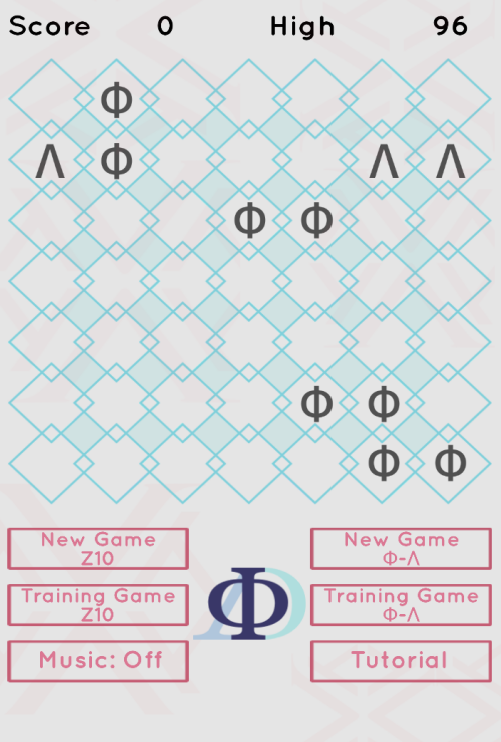
Many different kinds of methods are possible. Some might prioritize working out what happened. Some might just plow ahead with correction without worrying about the past. Others might find interesting ways to balance the two. We have already come up with some, but we want to know what else there is to know.
The app Decodoku:Puzzles came next. This focusses on the ‘what happened’ aspect of the puzzles. Once again, it comes in both Z10 and Phi-Lambda variants. The former is also suitable for a pen-and-paper version, just like the Sudoku you might do in the newspaper. So we also have a puzzle book full of Z10 puzzles.
All these games pit the player against noise. Since noise is random, it can sometimes be difficult to figure out what it’s doing. To help the player understand noise better, we made Decoduo. It’s a two player version of Decodoku:Colors that lets you play as both sides. Each move can be used to clean your own quantum computer, or to mess up that of your opponent.
That’s six games in total. Each let the player tackle a different aspect of the problem of quantum error correction. There’s no need to master them all. Insights on any of them will be useful to building quantum computers.
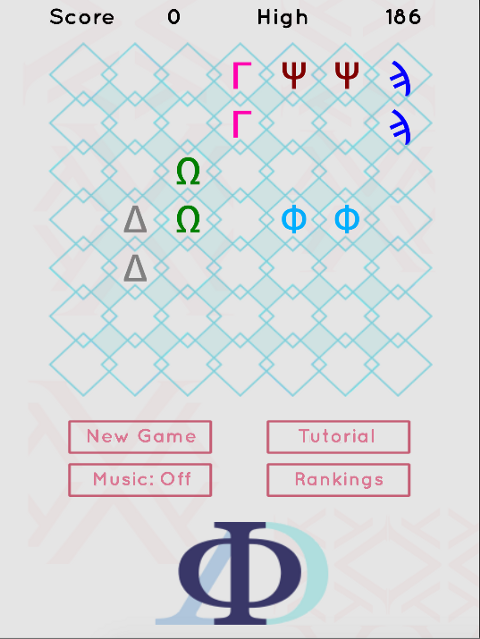
For all the links to get the apps on iOS, Android, Windows or Mac, see here. Note that Decoduo is currently in beta and available on desktop only.
Players as citizen scientists, not just data points
Some citizen science projects get the participants to generate data. Only the professionals get to do the clever stuff. But Decodoku isn’t like that.
Our project is all about letting the public become scientists themselves. They don’t make data for us. They do the clever stuff themselves. We provide everything required to do cutting edge research on quantum computation. How participants choose to go about it is up to them. They could keep all their secrets. They could try and sell them to the industry giants involved in the field. They could do anything.
This philosophy is what makes me so excited about Decodoku. But it also sets a relatively high bar for participation. You can’t just play a single game and feel happy that you contributed a few bits of data to a project. You have to think, and then tell someone what you thought.
We make this as easy as we can, but it still whittled our thousands of players down to a handful of contributors. But those contributors developed and told us about some great methods for quantum error correction. Methods that beat the pants off our existing ones.
Standing on the shoulders of giants
Much of science is about building on the work of others. We take ideas and techniques developed by other scientists and use it to make new progress. The work of our citizen scientists is no different. In the coming year well study their work and build upon it. We’ll apply and adapt it to new problems that we need to solve. And then we’ll acknowledge and cite them just as we would for any other scientist. They might even collaborate with us and become a fellow author on our papers. Given the quality of contributions so far, this seems like a definite possibility.
What we’ll be doing in 2017
There are many ways we might realize the dream of quantum computation with real physical stuff. Our research in 2017 will focus on one particular direction. Specifically we’ll be looking at D(S3) surface codes. For our citizen scientists, this means Φ-Λ.
Throughout 2016, I told anyone who’d listen that the Phi-Lambda games were the most important. Nevertheless, our citizen scientists mostly focussed on Z10 and Decodoku:Colors. That doesn’t pose a huge problem, since they are all closely related. Methods for one game can be adapted to those for another. So we have plenty to go on with the results generated so far.
Even so, we’d like to see some native methods for Φ-Λ. These games have information that’s hidden until you start doing things. But it might be that you did the wrong things. How to balance the need to acquire information with the need to avoid mistakes? We’d love to see some perspectives on this.
There are also more kinds of errors D(S3) surface codes than can be captured by Φs and Λs. We’ll be able to add these new puzzles, and see how methods will change to meet the new challenges.
Quantum socialism
Decodoku in 2016 was a sandbox in which the public could have a go at quantum error correction research. We professionals marveled at their progress, and gave guidance from above. But there was still a definite line between citizen and professional scientists.
Let’s make 2017 different. Let’s start to blur the lines between the two classes and work side-by-side. We’ll do the maths, and you do the clever stuff. Let’s design a D(S3) quantum computer together.
Check out our website to see how to join in. Or come and check us and other quantum citizen sciences projects out on Reddit.
This article was written by Dr James Wootton, quantum computation researcher at the University of Basel and published on medium.com
https://medium.com/@decodoku/decodoku-in-2017-e68e63a6d09c#.uz555vus6
